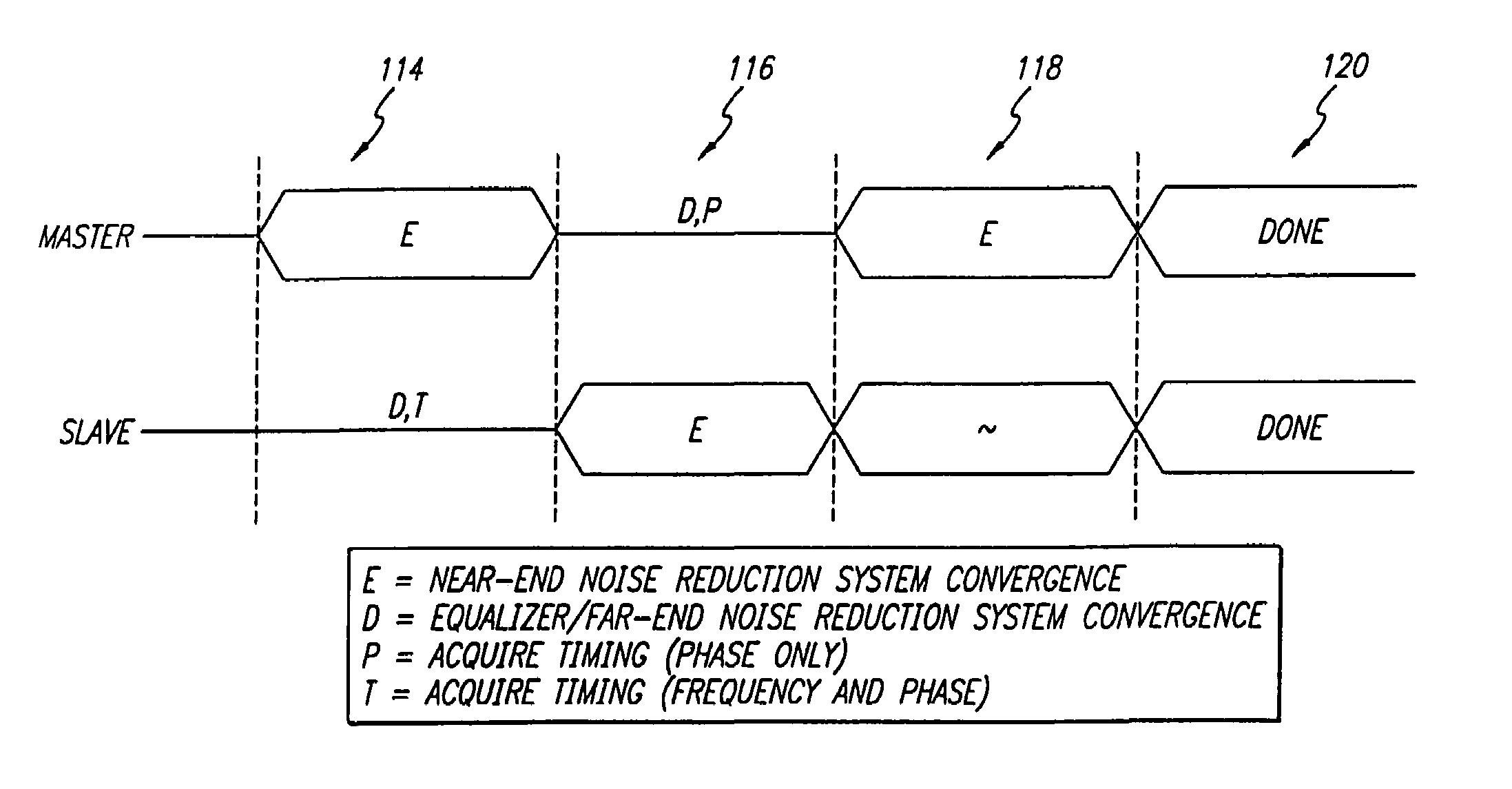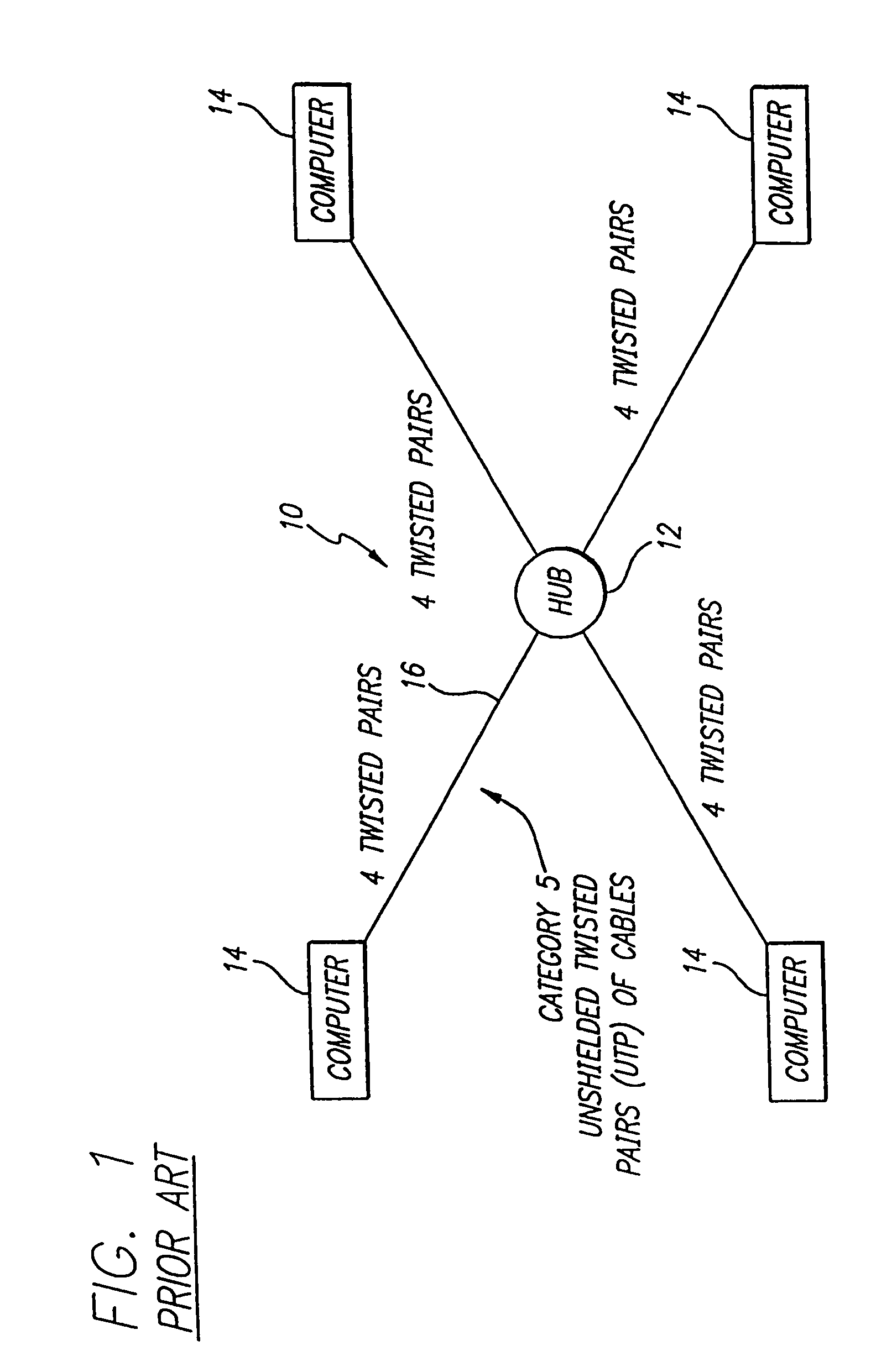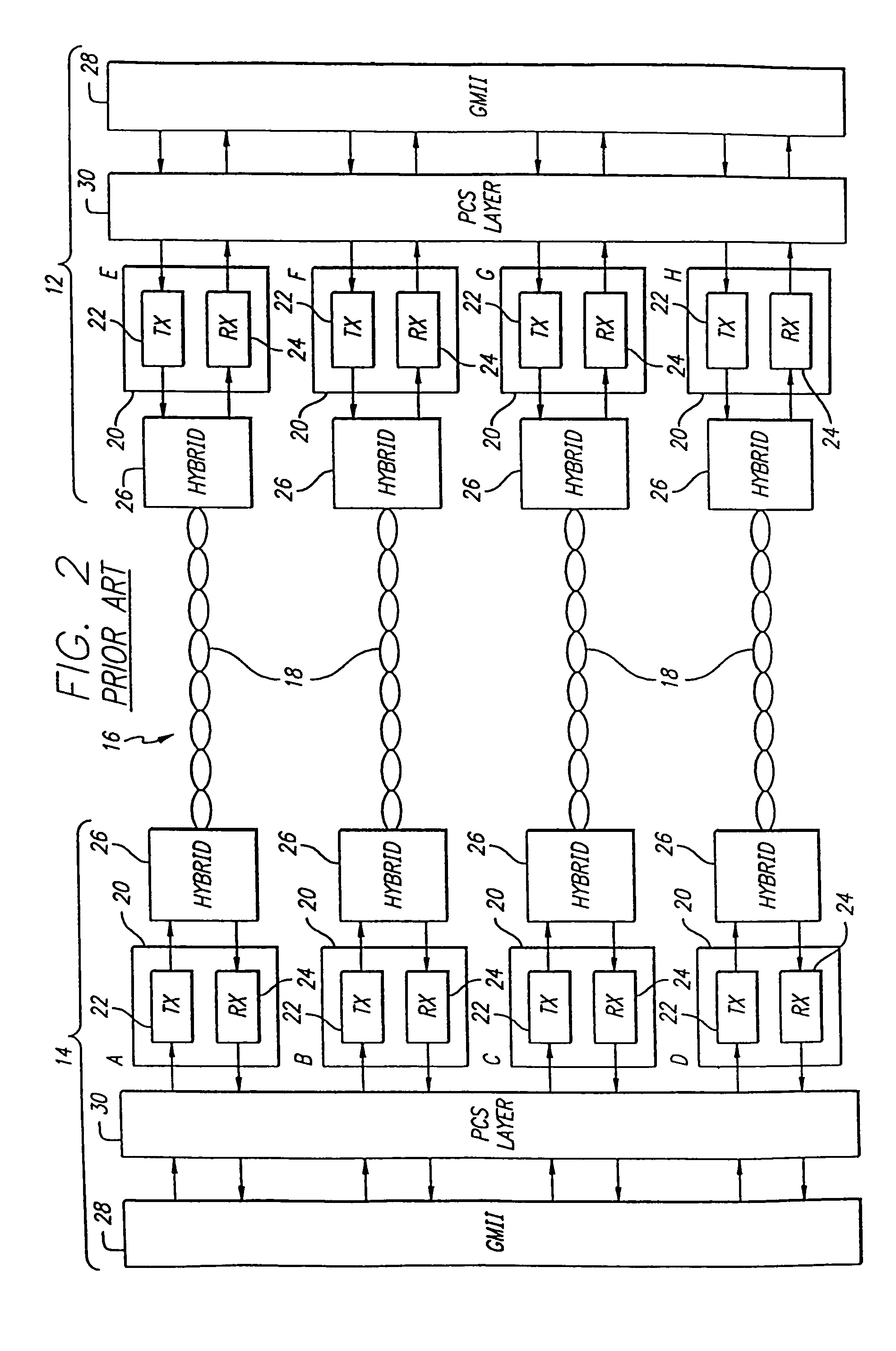Startup protocol for high throughput communications systems
a high-throughput communication system and start-up protocol technology, applied in the direction of line-faulst/interference reduction, amplitude demodulation, pulse technique, etc., can solve the problems of particularly the receiver portion, introducing crosstalk and echo noise or impairment signals into the transmission signals, and reducing the performance of the transceiver. , to achieve the effect of minimizing the change of operation
- Summary
- Abstract
- Description
- Claims
- Application Information
AI Technical Summary
Benefits of technology
Problems solved by technology
Method used
Image
Examples
Embodiment Construction
[0037]The discussion in this specification may be considered to relate specifically to a Gigabit Ethernet for the purposes of explanation and understanding of the invention. However, it will be understood that the concepts of this invention and the scope of the claims apply to other types of communications systems than a Gigabit Ethernet.
[0038]A communications system which may incorporate the features of this invention is generally indicated at 10 in FIG. 1. The system 10 includes a hub 12 and a plurality of computers serviced by the hub in a local area network (LAN). Four computers 14 are shown by way of illustration but a different number of computers may be used without departing from the scope of the invention. Each of the computers 14 may be displaced from the hub 12 by a distance as great as approximately one hundred meters (100 m.). The computers 14 are also displaced from each other.
[0039]The hub 12 is connected to each of the computers 14 by a communications line 16. The co...
PUM
 Login to View More
Login to View More Abstract
Description
Claims
Application Information
 Login to View More
Login to View More - R&D
- Intellectual Property
- Life Sciences
- Materials
- Tech Scout
- Unparalleled Data Quality
- Higher Quality Content
- 60% Fewer Hallucinations
Browse by: Latest US Patents, China's latest patents, Technical Efficacy Thesaurus, Application Domain, Technology Topic, Popular Technical Reports.
© 2025 PatSnap. All rights reserved.Legal|Privacy policy|Modern Slavery Act Transparency Statement|Sitemap|About US| Contact US: help@patsnap.com



